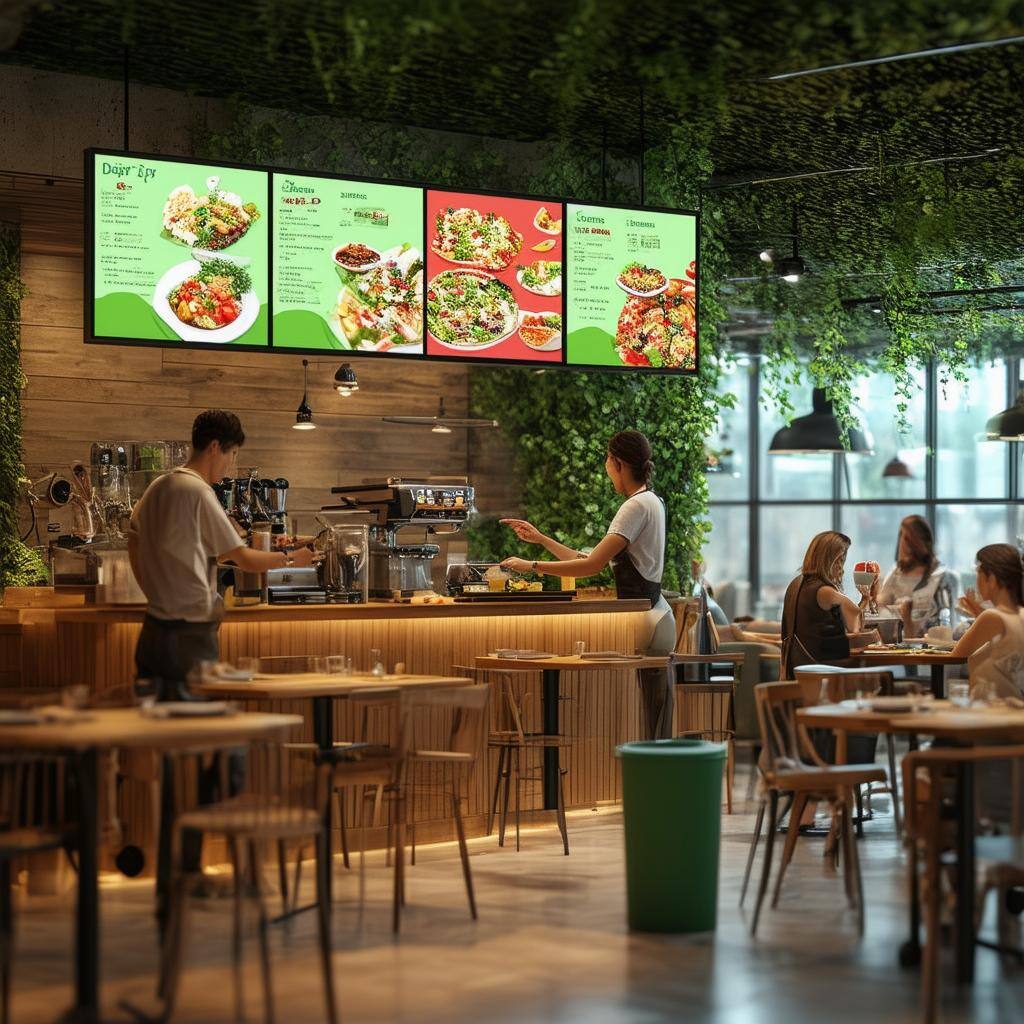Cutting Down on Paper with Digital Menu Boards
One of the most evident environmental advantages of digital menu boards in restaurants is the significant reduction in paper usage. Traditional menus, which are frequently subject to changes due to seasonal offerings or daily specials, often require a considerable amount of paper. The constant cycle of printing and disposing of menus leads to wastage and higher costs over time.
By contrast, digital menu boards allow restaurants to instantly update their offerings without the need for physical materials, which drastically reduces the demand for paper. This shift towards digitization directly contributes to a decreased carbon footprint, making digital menu boards a practical choice for eco-conscious restaurant owners.
MORE THAN 4,000,000 PRINTED MENUS SAVED EACH YEAR IN THE UNITED STATES
Energy Efficiency and the Cost of Digital Menu Boards
With advancements in display technologies such as LED and OLED screens, modern digital menu boards are becoming increasingly energy-efficient. Despite the initial cost of digital menu boards, the energy savings these screens provide over time make them a cost-effective choice for restaurants.
Moreover, manufacturers are continually innovating to enhance the energy efficiency of their products. Features like light sensors, which automatically dim the display during periods of low light, reduce energy consumption and, consequently, operational costs.
COSTS LESS THAN $20.00 FOR ELECTRICITY PER YEAR FOR EACH DIGITAL MENU BOARD
Responsible Recycling and the Lifecycle of Digital Menu Boards
When considering the lifecycle costs of digital menu boards, the benefits continue to add up. Unlike paper menus that often end up in landfills, components of digital menu boards are largely recyclable. Many digital signage manufacturers offer take-back programs, ensuring that outdated or broken equipment is disposed of in a manner that is as environmentally friendly as possible.
Promoting Sustainable Choices with Menu Boards for Restaurants
Not only do digital menu boards present cost and environmental advantages, but they also serve as a tool for promoting more sustainable customer choices. Restaurants can use these dynamic displays to highlight seasonal dishes or plant-based options, subtly influencing patrons to make choices that have less environmental impact.
